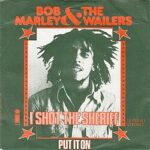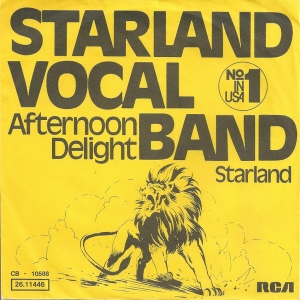 Few songs in popular music have the dual power to entertain and provoke thought in the way Bob Marley’s “I Shot the Sheriff” does. Originally recorded in 1973 for the album Burnin’ by Bob Marley and the Wailers, the track stands as one of Marley’s most enduring works, a song that blends the rhythms of reggae with potent storytelling and socially conscious lyrics. Over the decades, it has become a cultural touchstone, covered by countless artists, most famously by Eric Clapton, and interpreted as both a personal confession and a broader political statement. “I Shot the Sheriff” encapsulates Marley’s genius for transforming personal narrative into universal themes of justice, resistance, and morality.
Few songs in popular music have the dual power to entertain and provoke thought in the way Bob Marley’s “I Shot the Sheriff” does. Originally recorded in 1973 for the album Burnin’ by Bob Marley and the Wailers, the track stands as one of Marley’s most enduring works, a song that blends the rhythms of reggae with potent storytelling and socially conscious lyrics. Over the decades, it has become a cultural touchstone, covered by countless artists, most famously by Eric Clapton, and interpreted as both a personal confession and a broader political statement. “I Shot the Sheriff” encapsulates Marley’s genius for transforming personal narrative into universal themes of justice, resistance, and morality.
This article explores the creation, musical composition, lyrical content, historical and social context, reception, influence, and enduring legacy of “I Shot the Sheriff”, demonstrating why it remains a defining work in Marley’s catalog and reggae history.
The Context of Bob Marley and Reggae
By the early 1970s, Bob Marley had established himself as a powerful voice in reggae, a genre that had grown out of Jamaica’s ska and rocksteady traditions. Reggae was more than a musical style; it was a vehicle for cultural expression, political commentary, and spiritual reflection. Marley’s music, in particular, was infused with themes of Rastafarianism, social justice, and resistance to oppression.
Marley and the Wailers—comprising Peter Tosh, Bunny Wailer, and Marley himself—had been working steadily to refine their sound, blending tight rhythmic structures with socially conscious lyrics. Burnin’, the 1973 album that features “I Shot the Sheriff”, represents a critical moment in the group’s career, balancing accessible rhythms with sharp political commentary. Songs like “Get Up, Stand Up” and “I Shot the Sheriff” exemplified the band’s commitment to exploring societal tensions while appealing to both local and international audiences.
Musical Composition: Reggae Meets Storytelling
Musically, “I Shot the Sheriff” is a masterclass in reggae’s signature groove. The song features a syncopated rhythm characterized by the “one drop” drum pattern, a hallmark of roots reggae where the snare and bass drum emphasize the third beat of each measure. Drummer Carlton Barrett’s subtle yet propulsive rhythms drive the track, providing a foundation for the other instruments to weave intricate melodic lines.
Guitarist Al Anderson (or in some recordings, Marley himself) provides the skanking rhythm, a short, staccato chord pattern that accentuates the offbeat, giving the song its unmistakable reggae pulse. Bassist Aston “Family Man” Barrett’s melodic, rolling bass lines complement the rhythm guitar, creating a groove that is simultaneously hypnotic and driving. The interplay between rhythm guitar, bass, and drums forms the backbone of the track, allowing Marley’s vocals and lyrics to shine.
The song’s arrangement is deceptively simple but remarkably effective. Additional percussion, including subtle tambourine and handclaps, adds texture without overwhelming the groove. The recording employs a sparse approach to instrumentation in the verses, allowing Marley’s vocals to dominate, while the chorus brings more instrumental layering to heighten tension and drama. The song’s production, by Chris Blackwell and the Wailers, emphasizes clarity and warmth, ensuring that each instrument contributes to the hypnotic, laid-back energy that reggae evokes while keeping the narrative front and center.
Lyrics: Confession, Justice, and Moral Complexity
The lyrics of “I Shot the Sheriff” are at once straightforward and layered, telling the story of a man who kills a sheriff in self-defense but is pursued relentlessly by law enforcement. Marley’s delivery imbues the narrative with both urgency and stoicism, inviting listeners to engage with questions of morality, justice, and resistance.
The opening lines—“I shot the sheriff, but I did not shoot the deputy”—immediately set up the moral tension. By distinguishing between the sheriff and the deputy, the narrator implies a sense of selective justice, targeting what he perceives as a symbol of oppression while sparing others. This line establishes the protagonist as principled rather than indiscriminately violent, challenging listeners to consider the ethical dimensions of rebellion and self-defense.
Marley’s lyrics are also deeply rooted in the Jamaican social and political landscape of the early 1970s. The “sheriff” can be interpreted literally, as a representative of law enforcement, or metaphorically, as an emblem of oppressive systems, colonial legacies, or corrupt authority figures. Lines like “Every time I plant a seed, he said, ‘Kill it before it grows’” evoke broader societal pressures that stifle personal freedom and agency. In this way, the song operates on both individual and collective levels, telling a personal story while addressing universal themes of injustice.
The chorus—“I shot the sheriff, but I swear it was in self-defense”—underscores the narrator’s moral reasoning, framing the act as necessary rather than reckless. This confession and justification resonate with listeners, highlighting the tension between law and morality, authority and conscience. Marley’s ability to weave narrative complexity into a simple, catchy song exemplifies his skill as both a songwriter and social commentator.
Historical and Social Context
The release of “I Shot the Sheriff” occurred during a period of political tension in Jamaica. The early 1970s were marked by social unrest, economic hardship, and a polarized political environment. Issues such as police brutality, corruption, and inequality were pressing concerns, and Marley’s music reflected these realities.
Reggae, as a genre, often served as a vehicle for social critique, and “I Shot the Sheriff” fits within this tradition. The song’s narrative of confronting oppressive authority resonates with experiences of marginalized communities facing systemic injustice. At the same time, its storytelling approach made these complex themes accessible to international audiences, allowing Marley to communicate Jamaican social realities to a global listener base.
Marley’s Rastafarian beliefs also informed the song’s ethos. Rastafarianism emphasizes justice, spiritual awareness, and resistance to oppression, often referred to as “Babylon” in religious and cultural terms. In this framework, the sheriff can be seen as a representation of Babylon—forces that enforce control, suppress freedom, and perpetuate inequality. The song’s layered meaning allows it to operate both as a personal narrative and as a symbolic act of resistance.
Reception and Commercial Success
Upon release, “I Shot the Sheriff” received critical acclaim and significant airplay, establishing Marley as an international star. While it was already a hit in Jamaica and among reggae audiences abroad, the song’s profile skyrocketed in 1974 when Eric Clapton recorded a cover version. Clapton’s interpretation, which reached number one on the Billboard Hot 100 in the United States, introduced Marley’s songwriting to a much wider audience, helping to popularize reggae on a global scale.
Marley’s original version, meanwhile, became emblematic of his growing influence in the United Kingdom and Europe. The song received heavy rotation on radio stations and became a staple of Marley’s live performances. Critics praised its storytelling, rhythmic mastery, and Marley’s vocal performance, noting how he balanced melodic accessibility with lyrical depth.
The song’s commercial and critical success contributed to Burnin’’s enduring reputation as a seminal album, alongside tracks like “Get Up, Stand Up” and “Small Axe”. It also solidified Marley’s status as a cultural ambassador for Jamaica and reggae music, demonstrating that songs rooted in local experience could resonate with audiences worldwide.
Influence and Legacy
“I Shot the Sheriff” has had a profound and lasting influence on music and culture. It helped introduce reggae to international audiences, paving the way for artists like Peter Tosh, Jimmy Cliff, and Steel Pulse to gain broader recognition. The song’s fusion of storytelling, social commentary, and infectious groove has inspired generations of songwriters across genres, from rock to hip-hop to contemporary pop.
Eric Clapton’s cover of the song, while stylistically different, demonstrated the versatility and universality of Marley’s songwriting. Clapton’s interpretation emphasized rock instrumentation and blues-inflected vocals, showing that the narrative and melodic strength of “I Shot the Sheriff” could transcend genre boundaries. The success of both versions helped solidify Marley’s reputation as a songwriter whose work could appeal to diverse audiences without losing its cultural specificity.
The song has also been covered, sampled, and referenced extensively in popular culture. Its influence extends to film, television, and advertising, where it is often invoked to evoke rebellion, justice, or the tension between authority and individual conscience. In this way, “I Shot the Sheriff” continues to operate as both a musical and cultural touchstone.
Live Performances and Musical Evolution
Bob Marley and the Wailers frequently performed “I Shot the Sheriff” in concert, often using the song as a vehicle for extended improvisation and audience interaction. Marley’s live renditions emphasized the song’s rhythmic groove, allowing the band to expand on the bass and percussion while maintaining the narrative integrity of the lyrics. Live performances also highlighted Marley’s charisma and ability to connect with audiences, reinforcing the song’s status as a centerpiece of his catalog.
Over time, “I Shot the Sheriff” became emblematic of Marley’s approach to music: combining personal narrative, political consciousness, and infectious rhythm in a way that transcended cultural boundaries. Its performance history demonstrates the adaptability of reggae, showing how the genre can maintain its roots while engaging with audiences across different contexts and eras.
Themes of Justice, Resistance, and Morality
At its core, “I Shot the Sheriff” explores the tension between individual conscience and institutional authority. The narrator’s act of violence is framed as morally justified, a defense against oppression rather than a criminal impulse. This framing resonates universally, allowing listeners to interpret the song in personal, political, and ethical terms.
The song also reflects Marley’s broader worldview, one shaped by Rastafarian spirituality and social consciousness. Resistance to unjust authority, defense of personal freedom, and commitment to ethical action are recurring themes in Marley’s work, and “I Shot the Sheriff” exemplifies these concerns. It is both a cautionary tale and a call to action, blending narrative storytelling with moral reflection.
Conclusion: Enduring Power of I Shot the Sheriff
More than four decades after its release, “I Shot the Sheriff” remains a seminal work in Bob Marley’s catalog and in the history of reggae music. Its combination of infectious rhythm, sophisticated storytelling, and layered social commentary ensures its continued relevance. The song’s narrative of personal defense against oppression, framed within the context of Jamaican society and Rastafarian ideology, provides depth beyond its immediate musical appeal.
The global success of both Marley’s original and Eric Clapton’s cover demonstrates the song’s universality, showing that music grounded in specific cultural experiences can resonate across borders. Its influence on subsequent artists and genres underscores Marley’s enduring impact on popular music, and its continued presence in live performances, covers, and media attest to its lasting appeal.
“I Shot the Sheriff” is more than a hit single; it is a cultural artifact, a musical exploration of justice and resistance, and a testament to Bob Marley’s genius as a songwriter, performer, and social commentator. Its legacy endures, reminding listeners that music can be both enjoyable and meaningful, that a song can move the body as it engages the mind, and that the story of one man’s defiance can resonate with generations worldwide.
In the intersection of rhythm, narrative, and social consciousness, “I Shot the Sheriff” stands as a beacon of reggae’s power and Bob Marley’s enduring genius. Its themes of moral complexity, resistance to injustice, and personal courage remain as relevant today as they were in 1973, ensuring that the song will continue to inspire, provoke, and delight audiences for generations to come.


